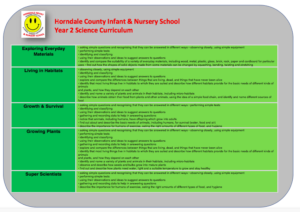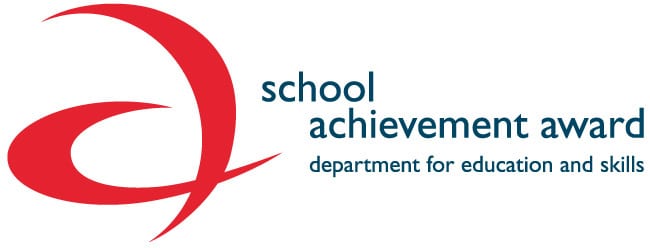At Horndale we follow the following Long Term Plan for teaching Science in Year 2.
Y2 Science Long Term Plan Overview 
Living things and their Habitat
Pupils should be taught to:
- explore and compare the differences between things that are living, dead, and things that have never been alive
- identify that most living things live in habitats to which they are suited and describe how different habitats provide for the basic needs of different kinds of animals and plants, and how they depend on each other
- identify and name a variety of plants and animals in their habitats, including microhabitats
- describe how animals obtain their food from plants and other animals, using the idea of a simple food chain, and identify and name different sources of food.
Plants
Pupils should be taught to:
- observe and describe how seeds and bulbs grow into mature plants
- find out and describe how plants need water, light and a suitable temperature to grow and stay healthy.
Animals including Humans
Pupils should be taught to:
- notice that animals, including humans, have offspring which grow into adults
- find out about and describe the basic needs of animals, including humans, for survival (water, food and air)
- describe the importance for humans of exercise, eating the right amounts of different types of food, and hygiene.
Uses of everyday materials
Pupils should be taught to:
- identify and compare the suitability of a variety of everyday materials, including wood, metal, plastic, glass, brick, rock, paper and cardboard for particular uses
- find out how the shapes of solid objects made from some materials can be changed by squashing, bending, twisting and stretching.







